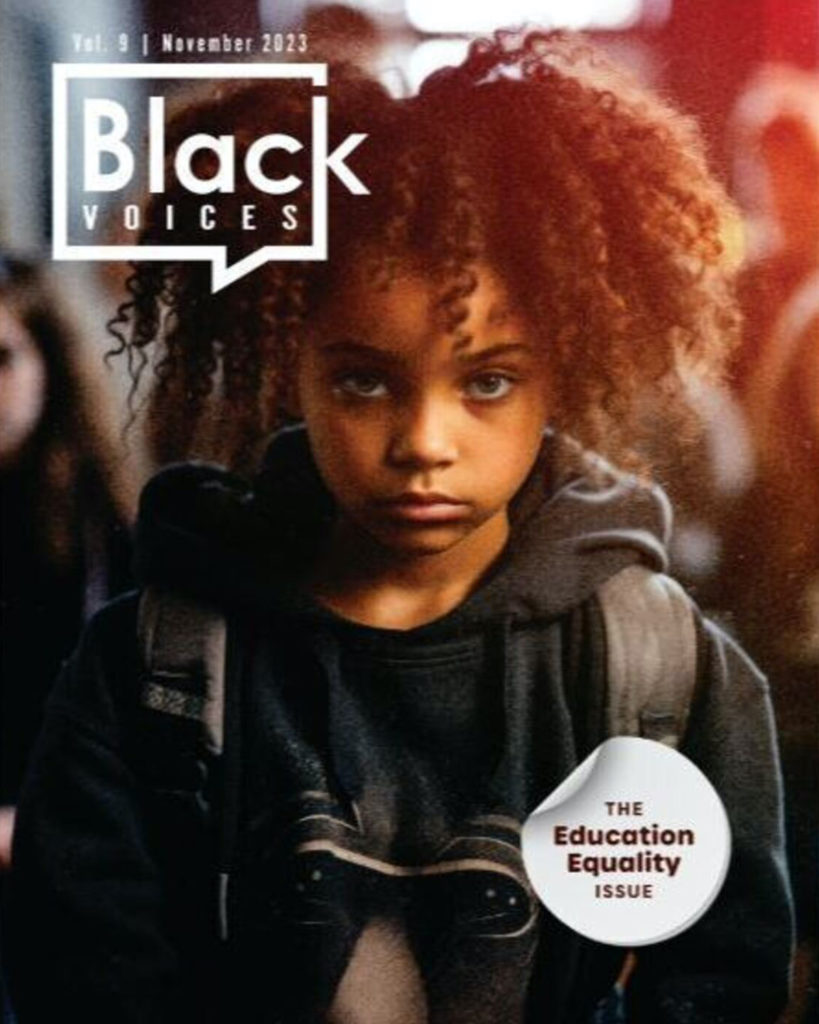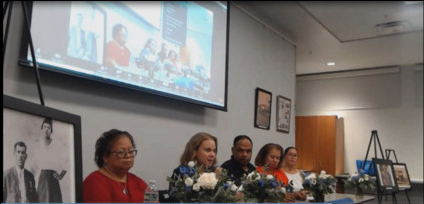This story was produced in partnership with the Delaware Journalism Collaborative, a group of local news and community organizations, of which Delaware Call is a part, working to bridge divides statewide. Learn more at ljidelaware.org/collaborative.
“You cannot legislate against someone hating you,” said Allan Slan, a member of the Seaside Jewish Community synagogue in Rehoboth Beach, Delaware. “So what do you do?”
Allan and Leslie Slan retired to coastal Delaware in 2017. Their kids are grown and have kids of their own now, so as grandparents in their mid-seventies, they thought moving to the beaches would be fun for the whole family, especially for visits during the summers and holiday seasons.
By their own admission, they never felt unsafe in their new community. So in December 2022, when Hannakuh coincided with Christmas, the Slans decided to decorate their home and front lawn for the holidays. They never gave it a second thought, thinking only that their home would look festive, much to the delight of the grandkids.
That changed on Sunday, Dec. 18, 2022 — the first day of Hannakuh — when their son left early one morning to walk the dog and found the front lawn littered with scraps of paper. His son looked closer at the scraps of paper and saw that it was the Sunday edition of The Washington Post, which his parents still had delivered to their home.
Confused at first, it soon became clear what was going on. One page of the newspaper was neatly folded open and propped against a lawn decoration that said, “Happy Hanukkah Peace and Light,” and on that section of newspaper was an obituary for a Jewish man — indicated by the Star of David.
“The message to me was clear,” said Allan. “This person was saying, ‘Death to Jews.’”
So the Slans did what thousands of others in the United States do every year. They contacted police to report a hate crime. They also reported the incident to the Anti-Defamation League, which tracks antisemitic hate incidents across the country.
According to hate crime statistics compiled by the FBI, the total number of incidents rose from 10,530 nationally in 2021 to 11,288 incidents in 2022. Although Delaware makes up a small fraction of the total number of hate crimes — with 9 incidents in 2021 and 16 in 2022 — each hate incident has the potential to destabilize the lives of the victims and rattle the nerves of entire communities, making everyone feel more unsafe.
Back in 2017, when several school buses at Cape Henlopen High School were vandalized with racist graffiti, Delaware State Police quickly launched an investigation and found the perpetrators, who were charged with multiple crimes, although notably not a hate crime, much to the dismay of some residents of Sussex County.
“This is not mere ‘reprehensible behavior,’ nor is it a mere act of vandalism,” said Lewes resident Derek Cole in a letter to the Cape Gazette newspaper about the racist graffiti. “This is a hate crime.”
Cole added that he did not think the omission was the result of a malicious or “surreptitious effort on anyone’s part to minimize the severity of the crime, but a failure to call it out for what it really is — a racially motivated hate crime — serves to minimize and normalize racist or other prejudicially motivated acts in our community, criminal or otherwise.”
Now, several years later, Slan was thinking the same thing.
“We didn’t expect anything to come of it,” he said, referring to his reports to the police. So they cleaned up the mess, talked about the incident with their neighbors, and went about their holiday celebrations, although in a higher state of alert than before.
“While we have throughout the course of our lives . . . well understood the antipathy of some toward Jewish people and been sensitive to the existent antisemitism, when that hatred arrives at your front doorsteps, it is unsettling at best,” the Slans wrote in a letter to the Cape Gazette. However, in the days following the incident, the community responded with a show of solidarity. The Slans’ Christian neighbors put up Hannakuh decorations and were one of many neighbors who submitted their own letters to the Cape Gazette in support of the Slans.
“It was such an amazing act of kindness and brotherhood,” Alan Slan recalls. “The outpouring from that was nothing short of amazing. . . there were calls and emails from people we didn’t even know, really, who were just flabbergasted by what had happened in their community.”
One of those letters would change the course of the Slans’ retirement. On Dec. 27, two members of the Southern Delaware Alliance for Racial Justice, Founder Charlotte King and Administrative Assistant Paulette Rappa, published a letter in the Cape Gazette condemning “these ongoing antisemitic activities that continue to plague our Sussex County communities.”
The letter went on to lambast local officials for not doing more to investigate hate crimes in Sussex County.
“It is no longer good enough to pay lip service to expressions of outrage, but instead, local and state officials need to respond more aggressively in identifying the culprits of this hateful behavior and act more assertively to enforce the laws designed to eliminate this festering sore in our community,” they wrote. “SDARJ is proud to support community members like the Slans and will always speak out against such blatant disrespect for that which makes us singular and human.”
Alan and Leslie were intrigued. Their friends and neighbors were speaking out to condemn the hate incident, but as Charlotte’s letter made clear, what about elected officials? When is it appropriate for a more robust response from community leaders or public servants? Or from law enforcement or business leaders? Could they be doing more as citizens to galvanize their community to action?
Southern Delaware Alliance for Racial Justice
The hate incident at the Slans household brought back some difficult memories for Charlotte King, who was herself the victim of a hate incident at her home back in 2020, when the political fervor of former President Donald Trump’s reelection campaign was in full swing. Charlotte, who had become a prominent activist in Sussex County since co-founding the Southern Delaware Alliance for Racial Justice in 2015, awoke one morning to find her front yard vandalized. Burned into her lawn was the word “TRUMP” in all capital letters, likely created by the perpetrators using weed killer.
Much like the Slans, she reported the incident to the police and didn’t expect much to come of it, but after raising awareness in a letter to the Cape Gazette, the community outcry convinced police to investigate it as a hate incident.
There are few people in Sussex County who are perhaps better prepared to combat hate incidents than Charlotte King. Through her work with SDARJ, she organizes monthly town halls to help educate the public on issues. Following the murder of George Floyd and subsequent protests, Charlotte organized a community meeting with the Georgetown Police Department that allowed citizens to confront police directly about their concerns, including use of force.
Asked about that meeting in particular, Charlotte recalled with laughter, “They must have brought their entire police force, and yeah so it’s funny because people who didn’t go to the meeting passed the church and called and said, “Charlotte what’s going on? Was there a raid? We’ve never seen that many police cars!”
“No!” Charlotte responded with laughter, explaining the town hall to her friend. “The police were probably afraid that they were going to get killed and so they had all their people there, but it was a good experience. It was really a very nice experience.”
SDARJ has also done outreach with the formerly incarcerated to discuss their experiences in prison; they also hosted a representative from the Innocence Project because, as Charlotte suggests, there is far too much ignorance in our society when it comes to the sheer brutality of incarceration.
“That’s my mission — just inform and educate,” said Charlotte. “Let people know. That’s what the town hall is about.”
Direct outreach, like what SDARJ did with the Georgetown Police, became a model for what Charlotte and the Slans would try to accomplish a few years later. With more direct citizen confrontation of police, or elected officials, or other prominent figures, could activists more quickly rally support for their cause?

Speak Out Against Hate
Inspired by the Southern Delaware Alliance for Racial Justice, the Slans and King set out to create their own group to combat hate in Delaware.
“There was no one speaking out about hate,” said Allan Slan. “So shortly after the first of the year, Leslie, Charlotte and I began to meet and talk about just what we could do. Hate was on the rise and was becoming normalized in our society — countrywide and locally.”
Knowing that the First Amendment does not allow government to “legislate against someone hating you,” Allan said forming an anti-hate group wasn’t about “prosecuting” anyone but rather about encouraging public leaders — from elected officials to community and business leaders — to speak out against what Slan saw as “the ever-increasing hatred, racism, anti-Semitism, Islamophobia, anti-gay and anti-lesbian sentiments — all of that — in order to denormalize it.”
Over the next few months, four members of the Seaside Jewish Community met with five members of the Southern Delaware Alliance for Racial Justice to form a new citizen-activist group: Speak Out Against Hate (SOAH). According to their plan, SOAH would organize five action-oriented groups to reach out to different groups of public officials: Police, School Boards and Youth, Faith Leaders, Business Leaders, and Elected Leaders. Their first meeting, held at the Lewes Public Library in October, was filled to capacity and a representative from the Southern Poverty Law Center delivered the keynote.
At the second meeting in November, also held at the Lewes Library and which Delaware Call attended, continued the process of organizing community members into each of the different action groups, which reported back on their progress. The Business group met with the Chamber of Commerce; the Education group discussed anti-hate curriculum for school districts; the Police group set up a meeting with the county police chief; and the Faith committee announced plans to bring together representatives from the many different congregations and houses of faith in lower Delaware to build a multi-faith coalition against hate. They may not be able to prevent the next hate incident in Sussex County or elsewhere in Delaware, but through SOAH, King and the Slans hope to stem the tide of hate by galvanizing community support for peace.
[Editor’s Note: A video of the town hall community meeting featuring the Daisey family is available on the SDARJ website.]

